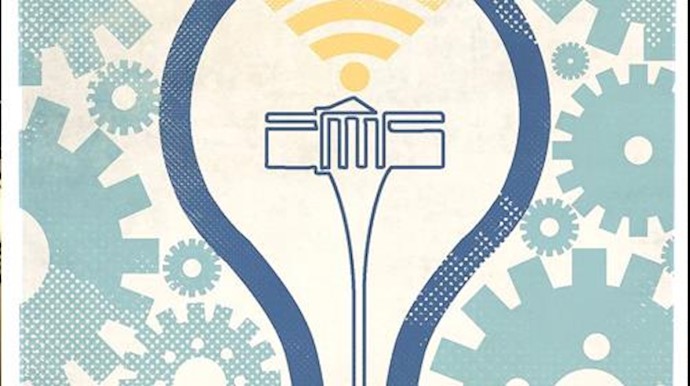The Washington Times, June 1, 2017 – In just a few short decades, the internet has grown from an academic curiosity to the driving economic, cultural and civic force of our time.
Unimaginably fast networks now crisscross the globe and no one even blinks as social media updates roll in from its farthest corners — and beyond (even the International Space Station is online). I’m proud to say that the American Conservative Union’s annual conference — known to conservatives around the globe as CPAC — had a half billion Twitter impressions along with live streaming to every continent.
But this torrent of innovation and expansion is under siege right now, thanks to crippling regulations placed upon our networks by the Obama administration.
These so-called “Title II” utility rules are a hangover from the days of Ma Bell and the Railroad trusts, a regulatory straightjacket designed for the lumbering monopolies of an earlier era, not the nimble competitive dynamos that imagined and built today’s high speed internet in just a few short years. In fact, although these bureaucratic relics lay fallow for decades, no one ever thought to apply them to the internet for most of its existence. Not until the last administration’s regulatory binge.
Fortunately, times have changed. Newly installed FCC Chairman Ajit Pai vigorously opposed these rules when they were first clumsily clamped onto broadband, and he has made clear he plans to move quickly to unshackle our networks and restore freedom to innovate online. For Americans who depend on the internet, this relief cannot come soon enough.
Experts report that, during the five years while the rules were being considered, the looming threat of utility regulation drove down broadband investment by $35 billion a year. In the two years since they were put in place, broadband investment has dropped another $4 billion. And that trend will only accelerate if something isn’t changed, putting jobs and deployment of faster and even farther reaching connections at risk.
That prediction’s no surprise. In Europe, where utility style rules have been in place for years, per-household investment in broadband is half what we see in the United States. And even liberal groups like the NAACP and the Communications Workers of America warn utility regulations are a threat to economic opportunity and put American jobs at risk.
Innovators and entrepreneurs are even more concerned, fearful that micromanaging experimentation and risk taking will short circuit the wellspring of digital progress and invention that consumers and citizens have come to rely on. They warn that burying network development and deployment in the kind of red tape that has strangled other industries will dry up the flood of life-changing breakthroughs like GPS mapping and directions, home digital assistants, and category breaking services like Uber and Airbnb. As Mark Cuban put it, “The internet can’t innovate living under the rules of a 1970s telephone company.”
On the other side of the ledger, supporters point to only one potential benefit offered by utility regulation — they claim it provides a clear legal foundation for separate “net neutrality” rules the FCC enacted at the same time. Those rules prevent internet providers from blocking, throttling, or harmfully discriminating against traffic online.
At a minimum, the claim that utility regulation provides legal support makes one important fact crystal clear — contrary to many activists trying to demagogue or politicize this issue, net neutrality and utility regulation are, in fact, two different things. And when Mr. Pai works to undo the ravages of utility regulation, he is not engaged in any kind of attack on net neutrality.
Beyond that, however, the liberal’s sales pitch is hollow. Utility regulation is not needed for net neutrality — Congress could pass a net neutrality law any time it wishes. If there are to be such standards for the internet, they should be enacted by Congress, not a rogue agency seeking to expand its turf. In the meantime, the “Title II” utility rules under “President Obama’s plan” (as Obama’s White House staff called them) are a gross overreach and do incredible harm to our networks, innovation and jobs.
While I do not believe the basic net neutrality rules are necessary (the FCC never found a systemic problem nor demonstrated a marginal benefit), they are not as onerous as the Title II overreach. While a case can be made for a kinder net neutrality rule, divorced from Title II, the question should be raised and debated in Congress where there is already support. Indeed, that is how the Framers of the Constitution intended laws to be made.
But Title II utility regulation is an entirely different beast, utilizing the most inefficient way to impose a rule. This is a malevolent creature of the FCC and it falls on the agency to atone for its own mistake. Mr. Pai should be commended for taking on this urgent work to protect the internet economy for the next generation of network innovation for all consumers.








